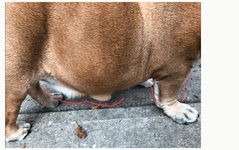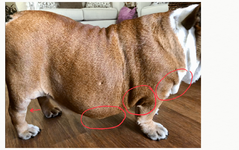My (just turned 8 years old) female English Bulldog had a senior panel/series of tests that showed she has low calcium and low albumin. She is otherwise in good health With some gastrointestinal diarrhea issues currently being controlled by Rx food.
Our vet suggested we test further for the low calcium/albumin readings but this one test may necessitate further tests, ultrasounds, etc. Regardless of my decision to test for this specific issue, we will definitely monitor it probably every six months or so with blood tests.
I understand this may not be clear but it might be to others who’ve gone down this road before. I’m willing to do what is best for my dog but I’ve not heard of this very specific health issue before and would appreciate any advice. Thank you all in advance.
Our vet suggested we test further for the low calcium/albumin readings but this one test may necessitate further tests, ultrasounds, etc. Regardless of my decision to test for this specific issue, we will definitely monitor it probably every six months or so with blood tests.
I understand this may not be clear but it might be to others who’ve gone down this road before. I’m willing to do what is best for my dog but I’ve not heard of this very specific health issue before and would appreciate any advice. Thank you all in advance.








